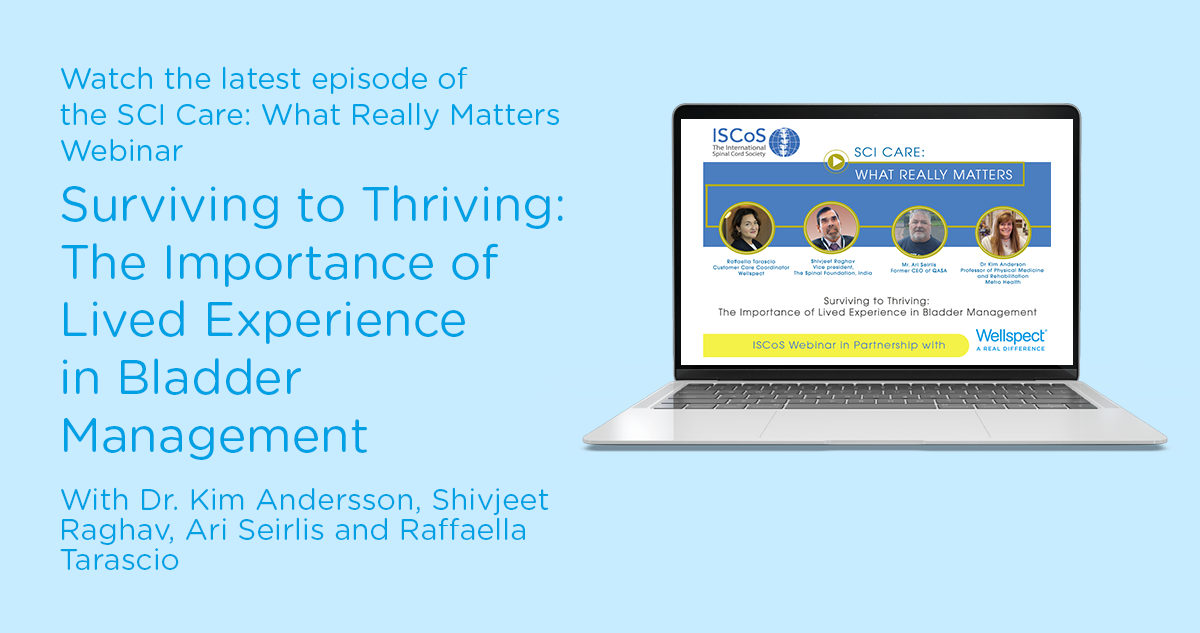We are happy to be back together with ISCoS for a new episode of their webinar series "SCI Care - What Really Matters". This time with a focus on the importance of lived experience in bladder management.

In this episode, host Dr. Kim Andersson and guests Shivjeet Raghav, Ari Seirlis and Raffaella Tarascio share their lived experience, expertise, geographical differences and thoughts for the future. During the episode each panelist reflects on a variety of questions and shares their experience. Where are they now and how far they have come, their lived experience and what is thriving in their country, what is the gold standard and how are they getting there?
Dr. Kim Andersson shares her experiences from the perspective of the U.S.A. Shivjeet Raghav shares what it has been like living with a SCI for over 40 years and his knowledge from an Indian perceptive. Ari Seirlis gives his account of how change was achieved in South Africa and Raffaella Tarascio shares the peer to peer support available today in Italy.
There are many different factors that can impact a spinal cord injured person’s choice and level of quality of life. What matters is finding the right solution for the individual to live their life as they wish, and to avoid complications and infections as much as possible. Through information, education and peer support all panellists agree that freedom, independence, and a higher quality of life can be realised. The level of information and support from professionals and peers is vitally important to a patient’s journey and can be the difference between surviving and thriving.
Want to learn more about the importance of peer-to-peer support in spinal cord injured individuals?
In our latest science alert article "Web-Based Health Coaching for Spinal Cord Injury: Results From a Mixed Methods Feasibility Evaluation", we explore the Allin et al. study which explores the feasibility and potential impact of health-coaching support for individuals with spinal cord injury (SCI).





